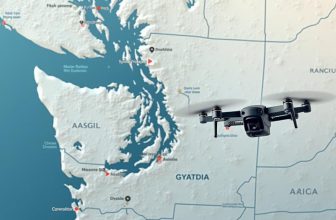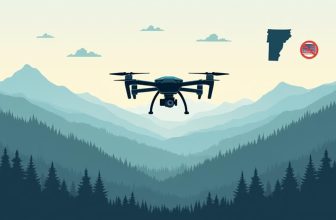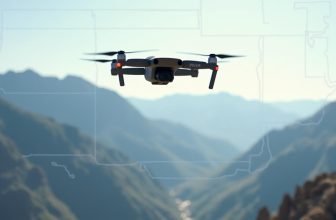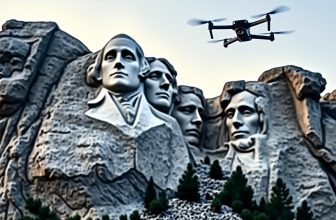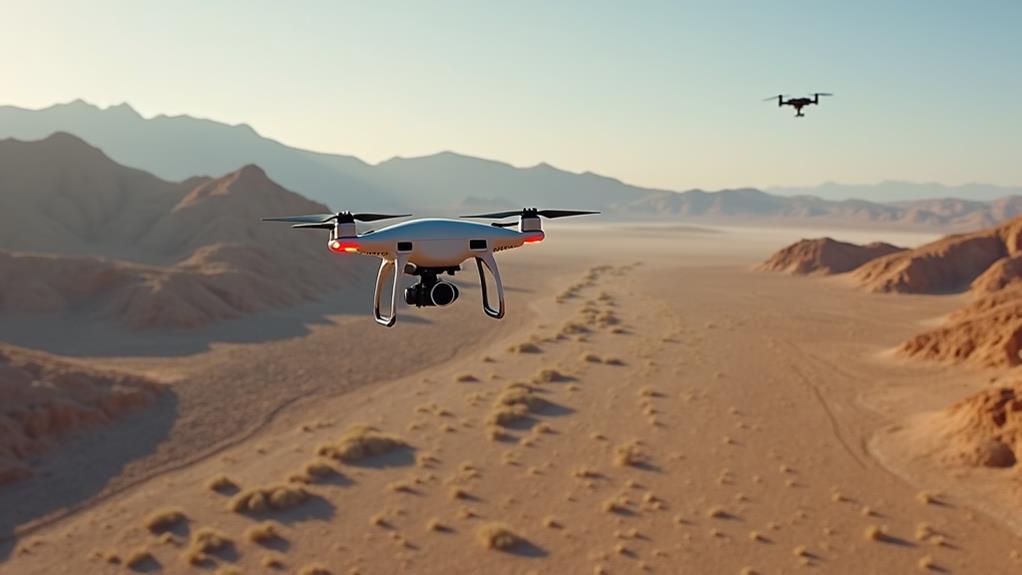
When flying a drone in Nevada, you'll need to navigate a mix of federal and state regulations to avoid costly penalties. As a recreational drone user, you'll need to register your device with the FAA if it weighs over 0.55 pounds, but that's just the beginning. If you're considering using your drone for commercial purposes, you'll face an entirely different set of requirements. But before you can take to the skies, knowing the rules is crucial to understand Nevada's drone laws – and what you don't know could put you at risk of fines or even criminal charges.
Contents
Key Takeaways
- Recreational drones in Nevada must comply with federal and state regulations, including FAA registration and recreational drone safety guidelines.
- Commercial drone operators in Nevada must obtain an FAA Pilot Certification and comply with Part 107 regulations.
- Nevada state law prohibits flying drones over crowds, schools, or critical infrastructure, and using drones for surveillance without consent.
- Drones weighing between 0.55 and 55 pounds must be registered with the FAA, with a $5 registration fee and 3-year expiration.
- Restricted airspace zones in Nevada include military bases and airshows, and the FAA's B4UFLY app or website should be checked for updates.
Recreational Drone Use Laws
When flying a drone in Nevada for recreational purposes, you'll need to comply with both federal and state regulations.
According to the Federal Aviation Administration (FAA), you must register your drone if it weighs more than 0.55 pounds and less than 55 pounds.
You'll also need to follow the FAA's recreational drone safety guidelines, which include flying below 400 feet, maintaining a visual line of sight, and not flying near airports or in restricted airspace.
In Nevada, you're also required to follow state regulations, which include not flying over crowds, schools, or critical infrastructure.
Additionally, Nevada state law prohibits the use of drones to gather evidence or conduct surveillance without consent.
To guarantee drone safety and avoid interfering with air traffic, you should also familiarize yourself with local no-fly zones and air traffic control restrictions.
By following these regulations, you can help guarantee a safe and enjoyable flying experience while minimizing the risk of accidents or conflicts with other air traffic.
Always check for updates on Nevada drone laws and regulations before flying.
Commercial Drone Operation Rules
Operating a drone for commercial purposes in Nevada requires you to meet stringent federal and state regulations, largely due to the increased risks and complexities associated with commercial drone operations.
As a commercial drone operator, you must obtain a Pilot Certification from the Federal Aviation Administration (FAA) by passing a knowledge test and maintaining a valid remote pilot certificate with a small unmanned aircraft systems (sUAS) rating.
You must also guarantee that your drone is properly insured, as Nevada law requires commercial drone operators to have Drone Insurance that covers liability for damages or injuries caused by the drone.
Additionally, you must comply with FAA Part 107 regulations, which govern the operation of commercial drones in the United States. This includes restrictions on operating over people, in certain airspace, and at night.
You must also maintain accurate records of your drone operations, including flight logs and maintenance records.
Failure to comply with these regulations can result in fines, penalties, and even revocation of your Pilot Certification.
Drone Registration Requirements
To register a drone in Nevada, you must adhere to the Federal Aviation Administration's (FAA) regulations, which require drones weighing between 0.55 and 55 pounds to be registered. The registration process is straightforward and can be completed online through the FAA's website.
| Registration Requirements | Details |
|---|---|
| Drone Weight | Drones weighing between 0.55 and 55 pounds must be registered. |
| Registration Fee | A $5 registration fee is required for each drone. |
| Registration Expiration | Registration expires after 3 years. |
Once you have registered your drone, you must also consider pilot certification pathways. The FAA offers various certification options, including the Part 107 certification, which requires passing a knowledge test and maintaining a valid certification every 24 months. Additionally, it is recommended that you explore drone insurance options to protect yourself and your drone in case of accidents or damage. By following these requirements, you can guarantee that you are operating your drone safely and within the bounds of Nevada drone laws.
Restricted Airspace Zones
Nevada is home to several military bases, including Nellis Air Force Base and Fallon Naval Air Station.
These areas are strictly off-limits to drones due to national security concerns. You'll need to maintain a safe distance from these bases, as operating a drone within these restricted zones can pose a significant risk to military operations.
Additionally, Nevada hosts various airshows and aviation events throughout the year, which may be subject to temporary flight restrictions.
These restrictions are typically announced in advance, and you'll need to check with the FAA or local authorities for up-to-date information on airshow restrictions. By understanding Nevada's restricted airspace zones, you can guarantee a safe and compliant flight experience.
Always check the FAA's B4UFLY app or website for the latest information on restricted airspace zones before flying your drone.
Penalties for Non-Compliance
| Offense | Legal Fines | Criminal Charges |
|---|---|---|
| Operating in restricted airspace | Up to $1,000 per violation | Class C felony, punishable by up to 5 years in prison |
| Failing to register a drone | Up to $250 per violation | Misdemeanor, punishable by up to 6 months in jail |
| Operating a drone recklessly or negligently | Up to $5,000 per violation | Class B felony, punishable by up to 10 years in prison |
| Interfering with manned aircraft or airport operations | Up to $10,000 per violation | Class A felony, punishable by up to 20 years in prison |
It's essential to note that these penalties can be imposed by federal and state authorities, as well as local law enforcement agencies. By understanding the potential consequences of non-compliance, you can take the necessary steps to guarantee that your drone operations are safe, responsible, and compliant with Nevada's drone laws and regulations.
Frequently Asked Questions
Can I Fly a Drone Over a Wildfire in Nevada?
When flying a drone over a wildfire, you must prioritize safety, avoiding interference with firefighting efforts. You're required to obtain authorization and follow strict guidelines, vital for aerial journalism, while ensuring wildfire safety protocols are upheld.
Are There Drone Laws for Hunting in Nevada?
You'll need to follow hunting regulations when using drones for wildlife surveillance. In Nevada, using drones for hunting or scouting is restricted; check with the Nevada Department of Wildlife for specific drone-use guidelines and permits.
Can I Use a Drone to Inspect My Private Property?
You can use a drone to inspect your private property, particularly for reviewing property boundaries or conducting aerial surveillance, as long as you're the property owner or have explicit permission from the owner.
How Do I Report a Reckless Drone Pilot in Nevada?
When reporting a reckless drone pilot, you'll file a complaint with the Federal Aviation Administration (FAA) or local authorities. For Drone Enforcement and Pilot Accountability, provide detailed incident descriptions and any supporting evidence to facilitate investigation.
Are Drones Allowed on Nevada State Park Lands?
You're likely aware that 80% of drone users unintentionally breach park rules. When visiting state parks in Nevada, you'll need to check with Land Management agencies for specific drone regulations, as they vary per site.
Conclusion
As you take to Nevada's skies with your drone, remember that compliance is key. Non-compliance can be a pricey mistake, with fines that can leave a dent in your wallet. To avoid a world of trouble, register your drone, follow the rules, and steer clear of restricted airspace. By doing so, you'll be flying high and staying safe – without any unwanted surprises from the authorities. Stay informed, stay compliant.



